Since arriving in Africa, I’ve been so immersed in new people and places that each time I’ve sat down to write I’ve just processed the latest experience and not said a word about overarching matters. Lately I’ve had time to catch my breath and ponder what the heck I’m doing, and I want to download thoughts on one of those global matters: fear and the traveling girl. (OK, more accurately, the older woman traveler).
Before leaving Alaska, I was astounded at the worried comments and sober admonitions I received. “Uganda?” almost everyone repeated with an appraising look. “Do be careful.” It’s hard to say whether people were assessing my sanity or their recall of African geography and events, but I did tell more than one person that Idi Amin has been gone a long time and that Uganda might in fact be an interesting place to visit.
I remember an incident from two years ago when my daughter Hanna and I drove our old Subaru from Anchorage to the east coast. Driving down the Alaska Highway late in August, we pulled into a gas station one afternoon in a little town in northern British Columbia. As the young Canadian man filled the tank, he asked us where we were going. “New York City,” I told him. His eyes flashed concern. “New York? Is it SAFE to go there?” he asked, glancing at Hanna and back at me. “Yes, it’s fine,” I told him, but he looked so dubious that I found myself explaining that millions of people live there and work and raise families and manage to survive. “I guess I’ve just seen the movies about New York,” he said. “It looks so dangerous I wouldn’t dare go there.”
He is right, of course. There are crimes and killings that happen every day in New York. And there are crimes and killings and health disasters and wars in Africa. But staying home in fear of the unknown just doesn’t make sense to me.
In the U.S., I live in the same media environment that everyone else is immersed in, and what pops into mind at the mention of Africa are the tragic things: Sudan and Darfur in particular, the terrible state of things in Zimbabwe, eruptions of violence by rebel soldiers in several regions, and so many refugees that the state of existence for many Africans seems to be in permanent flux.
My point is not that poverty and disease and danger should be ignored. My thought is that restricting knowledge to the headline news and fearing for my own safety is not a reason to stay away, or to stay ignorant, or to be fearful. Not that everyone needs to go traipsing off to remote corners of the world. Some of us have peripatetic feet and some of us are happier at home. As one who is called to wander and see for herself, I can say that the picture is so much bigger than any one of us sees and more multifaceted than the news media report.
What travel can do is inject doses of understanding into issues that seem overwhelming. It’s true that Africa has millions of children who have lost parents to HIV and AIDS. It’s uplifting to see firsthand the people and programs that are actively assisting those children. On my first day at Rakai, a counselor took us to visit a household where both parents had died in the last couple years. The counselor had just learned that the children were living there on their own. We knocked on the door and an eight-year-old boy answered. He talked to us shyly, telling us that his siblings were in school and a neighbor checked on them regularly. What struck me was not just the real face of this “child head of household” but also the counselor’s calm compassion in bringing care to this family of children.
And malaria, so big in the news, is more real than I ever imagined. People are continually getting it. Africans, that is. Like other northerners I’ve bumped into, I’m protected by the anti-malarial tablets I pop every week. Plus I usually sleep under a mosquito net. But for those born on this continent it’s a different story. Four or five people in the wedding group came down with malaria by the end of the two weeks of festivities. And Angela, the teacher I worked with at Rakai, got malaria the second week I was there. And Esther, who walked five kilometers each day to the Manor House workshop and symposium, came down with malaria after those events were over. And these are not impoverished Africans. They are people with more resilience than many others I’ve met, and they all took medicine to help them get over it and get on with life.
And refugees. Riding on the bus from northwestern Uganda back to Kampala after the wedding, we saw one IDP camp after another. (“Internally displaced persons” is the term used in Uganda and elsewhere.) Charlotte, who works with IDPs in Burundi and northern Tanzania through an NGO, told us about the UN-established camps we saw from the bus that morning after leaving Arua. “It started in 1986,” she said of the rebel activity in northern Uganda. “People run for shelter in schools or churches or wherever they can be safe.”
With so much suffering, it is surprising how much hope is held by so many people. Samuel, who I met in Kenya, showed me the gardens where he and two Manor House interns teach agricultural methods to farmers in the region who are beset by periodic droughts. Samuel and his wife Peris also work with women affected by HIV, teaching them gardening so they can meet their basic food needs and vocational skills so they can earn an income. Samuel and Peris have turned their living room into a resource center for their program, and they live with their two children in less space. In the yard outside, a big pile of bricks marks the place where they plan to expand their program space. They do not yet have money to build an expansion, but they have complete faith that it will happen.
I’m finding that tragedy is present in profound ways in Africa, but suffering is not the only reality. Resilience is here too, and kindness, and determination. In Uganda and Kenya I found such an entrepreneurial spirit and so much energy for building lives and livelihoods. Ugandans are especially receptive to visitors and often ask, “How do you find my country?” In Kenya I constantly heard Karibu! (welcome). In South Africa I’m still getting the feel for things. The infrastructure is leap years ahead of most countries to the north, but the political climate is testier.
As for the dangers that can beset a traveler, anyone who has experienced a theft or a mugging or a miserable experience with lodging or transportation knows that travel (whether foreign or domestic) is not always fun. If one is lucky enough to avoid serious misfortune, there is still the uncertainty of traveling where the language is unfamiliar and the cues (social, physical, or whatever) are even more undecipherable. When you can’t interpret words or faces or road signs, finding the way through a city or a situation can be difficult.
I follow my daughters’ instructions to not walk alone after dark and I take other basic precautions. I seek guidance from locals and hear their protectiveness, like the hotel staff in Kampala who told Dad and Don and my brother and me, before we exchanged our American dollars for Ugandan shillings, “Watch out, there are thieves everywhere.” And I file away Carla’s safeguards, like never leaving a car parked on the street in this city. But my idea of travel is not exactly the mainstream model. I choose safety but not luxury, and I’ll take adventure and economy over comfort and speed. I travel to learn more than anything else.
Most of all I follow my instincts about what to do and what not to do. A solo traveler has to be in tune with herself as well as the world around her, not just for safety but for the fullest experience. Traveling solo at 18 was a great introduction to the world. Traveling at 53 is even better. I get fewer passes and more respect, and I love how everyone from Kampala to Kitale to Johannesburg calls me Mama.
It is sad that people in the U.S. hear the worst about Africa and often fear the rest. The fact is, what I’ve experienced here is warmth, community spirit, human kindness, and a desire to make life better. Being here for this blink of time brings me close to what I regard as important – living consciously, having a real idea of how we are connected to each other, and seeing how each of us matters.
OK, enough musing! Tomorrow Carla and I leave for Swaziland and KwaZulu province. So now we need to pack for the road. But one more thing! October 8 is coming soon and I may be far removed from an internet connection so here’s an early HAPPY BIRTHDAY, MOM! 76 – woohoo!
Friday, October 5, 2007
Subscribe to:
Post Comments (Atom)

.jpg)






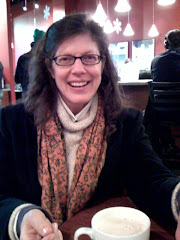





.jpg)

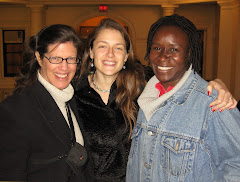.jpg)


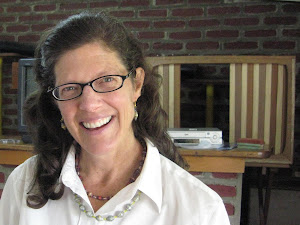.jpg)

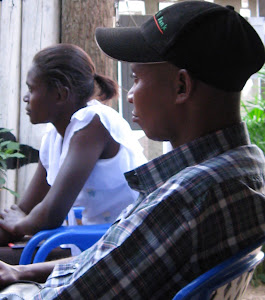.jpg)
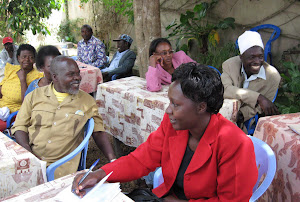.jpg)
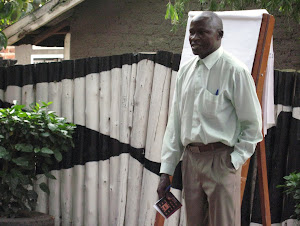.jpg)




























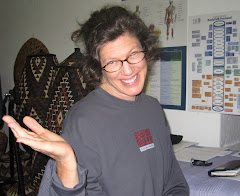



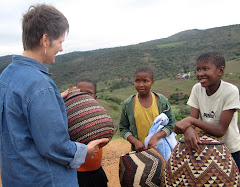.jpg)




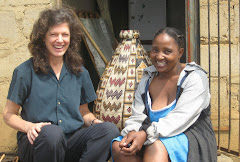










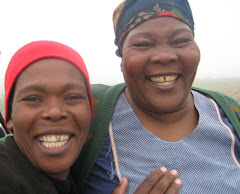.jpg)

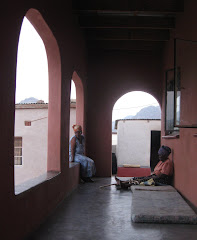.jpg)

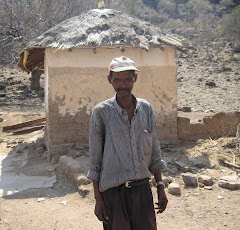.jpg)
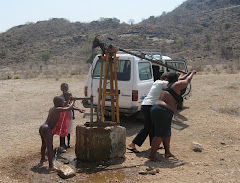.jpg)
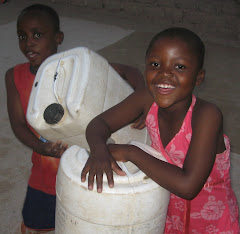.jpg)
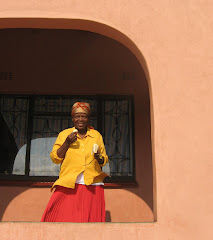.jpg)

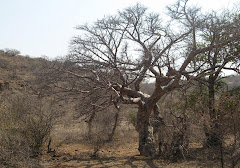.jpg)



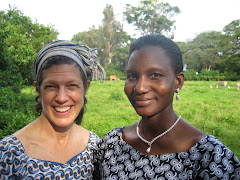



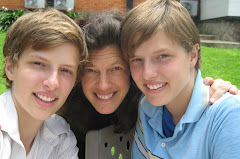.jpg)
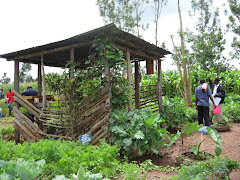
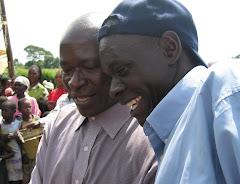.jpg)

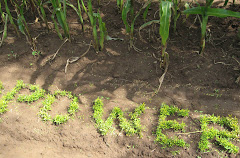.jpg)
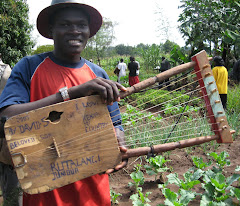.jpg)





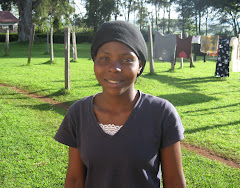.jpg)



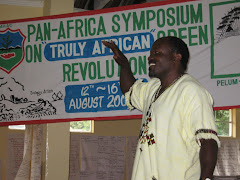

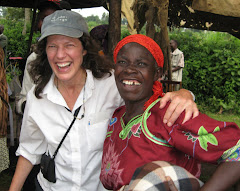.jpg)
















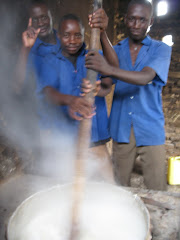.jpg)










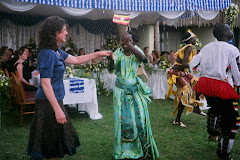.jpg)
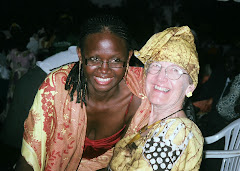.jpg)




1 comment:
Look what I've missed while GCI left us with dial-up for awhile. What a super post, Carol. Insight into the area and what makes those peripatetic feet keep going! Thanks.
Now, if I can just remember how to login here...
xoxo
Post a Comment